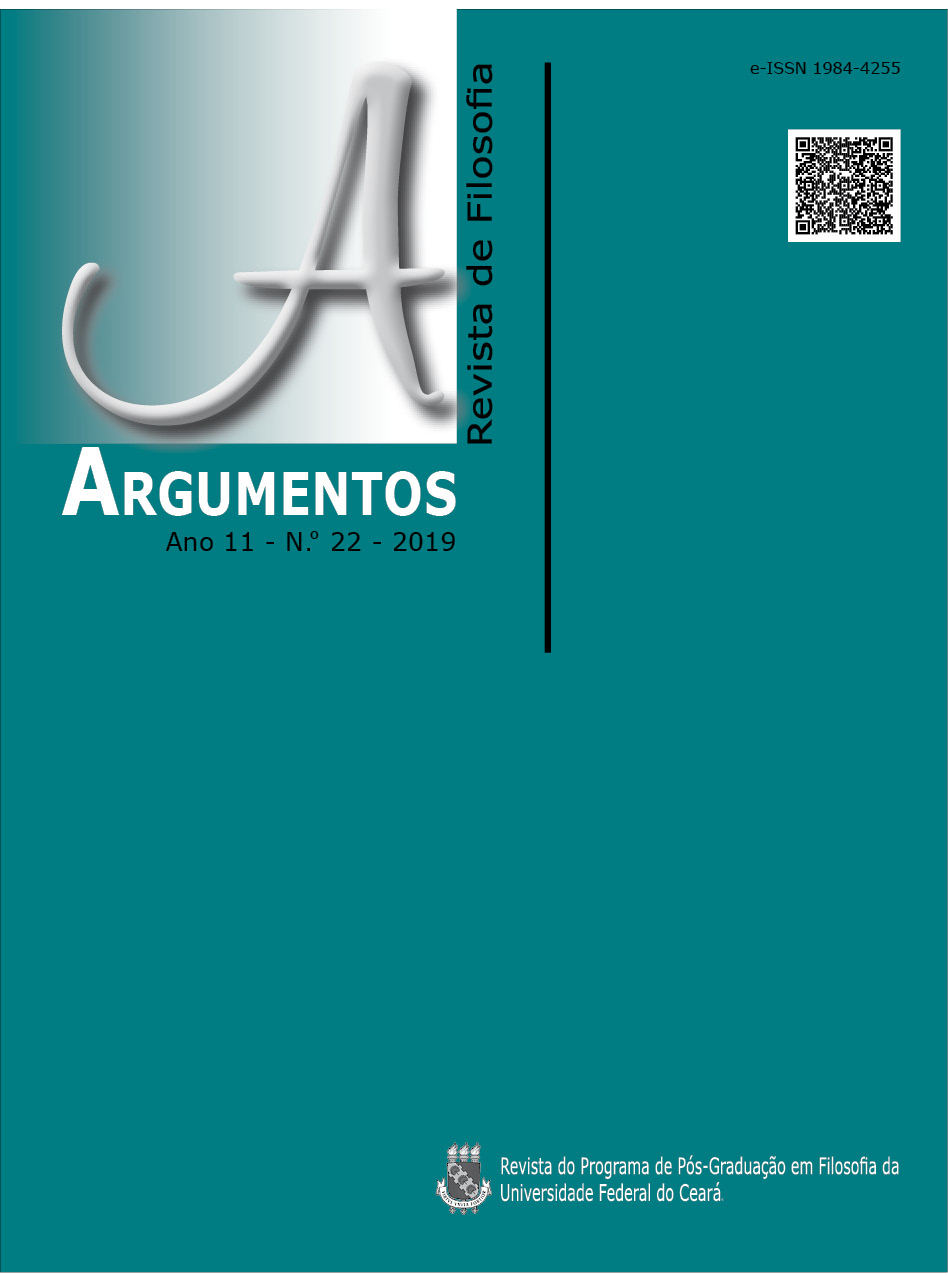The abortion in the perspective of Norberto Bobbio (1909-2004)
DOI:
https://doi.org/10.36517/Argumentos.22.12Keywords:
Norberto Bobbio. Abortion sought. Right to life and to live. Women rights.Abstract
The subject of this research is abortion sought in the philosophical-ethical perspective of Norberto Bobbio. The problem that we intend to answer with this research is to understand “the reason” of the position opposed to the legalization of the abortion sought, being Bobbio a secular thinker and averse to any profession of religious faith and still considered in intellectual Italy today as the “lay pope” of the 20th century. The objective is, therefore, to penetrate deeply the Bobbian perspective on the problem of abortion sought, which lies within a triple relationship of irreconcilable rights: the right of society not to overpopulate, the woman’s right not to have her children who does not wish to have, and thirdly, but no less fundamental, the right of the unborn to live. To meet this objective, Bobbio’s thinking about the value of life as “source of all other values” must be presented, while conditio sine qua non for the realization of all other values; to investigate the reasons that moved Bobbio to oppose the secular tendencies of the late twentieth century that defended the right to abort as a woman’s right to her body. This theme is justified at the academic-scientific level, since this theme, although extremely current and problematic for life in society today, is not approached from a philosophical and ethical-political perspective, as does Norberto Bobbio in the year of 1978. It also highlights its social relevance, since there are thousands of clandestine abortions in Brazil annually, in parallel with thousands of deaths of women victims of the abortion industry. This research is eminently bibliographical, since it analyzes the main writings of Bobbio on the rights to life and to live, as well as some other works of support and commentaries. The expected results are primarily a deep and clear understanding of the Bobbass perspective on the relationships involving the abortion problem sought, as well as shedding light on the complex issues affecting one of five women today.References
BOBBIO, Norberto. “Destra e sinistra” (1994), in Destra e Sinistra: ragioni e significati di una distinzione politica. Roma: Donzelli, 2004, p. 49-153.
BOBBIO, Norberto. “Due paradossi storici e una scelta morale” (1954), in Il dubbio e la scelta. Roma: Carocci, 2001, p. 25-29.
BOBBIO, Norberto. “Il dibattito attuale sulla pena di morte” (1982), in L’ettà dei diritti. Torino: Einaudi, 1997, p. 201-229.
BOBBIO, Norberto. “Laici e aborto”, in Corriere della Sera 106, 107 (1981), p. 3.
BOBBIO, Norberto. “Pro e contro un’etica laica” (1983), in Elogio della mitezza: e altri scritti morali. Milano: Il Saggiatore, 2006, p. 163-181.
BOBBIO, Norberto. “Ragion di stato e democrazia” (1991), in in Elogio della mitezza: e altri scritti morali. Milano: Il Saggiatore, 2006, p. 89-104.
CATTANEO, Mario Alessandro. “La paternità dimenticata”, in Il Sole 24 ore, 27 de Janeiro 1994.
PALMARO, Mario. Ma questo è un uomo: indagine storica, politica, etica, giuridica sul concepito. Cinisello Balsamo (MI): San Paolo, 1982.
Tribunale di Pesaro, 9 de Junho de 1978, sentença n. 108/81 Corte Costituzionale.
Downloads
Published
Issue
Section
License
Argumentos magazine is licensed under an International Creative Commons Attribution License.
The Magazine uses CC BY inclusion
1) The authors retain the copyright granted to the magazine or the right to initial publication, with the work regularly licensed under the Creative Commons Attribution, which allows the sharing of the work with acknowledgment of authorship and initial publication in this magazine.
2) The authors are authorized to contract additional applicable contracts, for non-exclusive distribution of the version of the work published in this journal (for example, publication in the institutional repository or as a chapter of the book), recognition of authorship and initial publication in this journal.
3) Authors are authorized and encourage to publish and distribute their work online (for example, in institutional repositories or on their personal pages) at any time before or during the editorial process, as they can generate productive changes, as well as increase the impact and reference of published work.




.jpg)










._._3.png)
1.jpg)
._._._.png)
